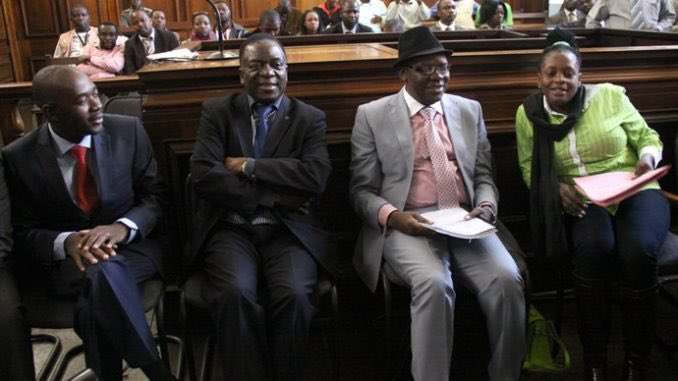By Harry Ruka Mazhindu
Based on experience, a coalition government cannot provide the required stability for the development of the country because of the bickering on service delivery issues such as sanitation, water and electricity in relation to complex national policy issues.
The coalition government formed by ZANU-PF led by former president Robert Mugabe and the two MDC formations led by the late prime minister Morgan Tsvangirai and Professor Arthur Mutambara between 2009-2013 had a tough time reaching a consensus on many issues to the extent that at one time the MDC formation cabinet ministers boycotted cabinet meetings after a clash on policy issues. There was a lot of suspicion amongst the coalition that it was the voter that suffered the consequences.
The simple definition of coalition government is a marriage of convenience between two or more political parties to form a governing structure for a mutual benefit. However, a coalition involves a compromise of ideological positions and principles between multiple political parties in a desperate bid to form government where none of them could achieve an outright majority or in instances where there is conflict and need to unite warring parties as was the case in Zimbabwe.
In a political democracy system where political parties lure electorates on the basis of ideologies, such an arrangement does not only amount to opportunistic betrayal of the masses, but it is also inherently prone to instability given the extreme divergence of policy positions between ZANU-PF, MDC Alliance and CODE (alliance).
It is within the above context that by their nature coalitions of all kinds are based on problematic grounds and they become more prone to technical “disintegration” once they take-off before of non convergence of views.
The 2008 harmonised elections that left over 200 mostly opposition supporters dead and thousands scarring for cover resulted in a coalition government between ZANU-PF led by former president Robert Mugabe and the two MDC formations led by the late prime minister Morgan Tsvangirai and Professor Arthur Mutambara irrespective of their diametrically opposed views in terms of the country’s macro-economic policy or the direction that should be taken for the development and prosperity of the country.
Based on the cobbled together coalitions which often operate under serious threat of disintegration, some political commentators seem to have been persuaded that coalition government is a panacea of all our problems after the 2018 general elections.
There is no doubt that Zimbabwe and Kenya that formed coalition governments around the same time can attest to the difficulties of sustaining a coalition government at the expense of service delivery because of infightings due to diverging views. It is disingenuous to believe that coalition government is the appropriate intervention to solve the country’s problems of an economy in intensive care.
Therefore based on our experience a coalition government cannot provide the required stability for the development of the country even though there was some measure of stability during the Government of National Unity (GNU).
